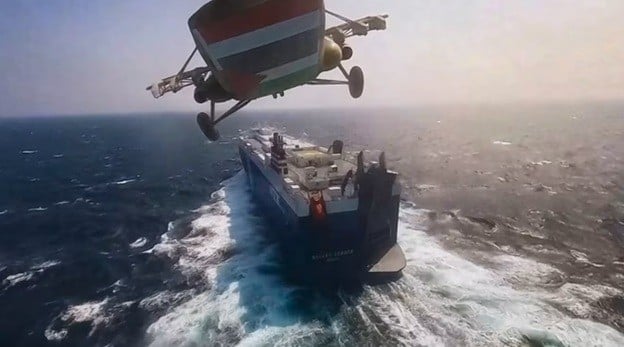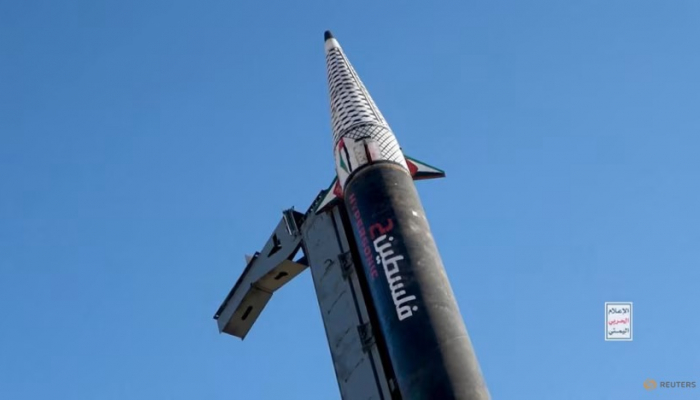Houthi attacks oil tanker in Red Sea
Accordingly, a missile launched from Yemen hit the left side of the oil tanker M/T Pollux. Houthi forces in Yemen admitted to carrying out a missile attack on the oil tanker Pollux, which they said was a British ship in the Red Sea.
In a statement, Houthi spokesman Yahya Sarea said the force fired multiple missiles aimed directly and accurately at the Pollux oil tanker.
The attack occurred 70 nautical miles off the Yemeni city of al-Mukha, the UK Maritime Trade Operations (UKMTO) and British maritime security firm Ambrey said. UKMTO confirmed that the military responded and that both the ship and crew were safe.
 |
| Houthi forces attack oil tanker in the Red Sea. (Photo: Reuters) |
“ The vessel is believed to have suffered minor damage. The crew is reported safe and uninjured ,” Ambrey said. According to LSEG data, the M/T Pollux departed from the Russian Black Sea port city of Novorossiysk on January 24, and was scheduled to unload at Paradip, India, on February 28.
The M/T Pollux cargo ship is owned by Oceanfront Maritime Co SA, and managed by Sea Trade Marine SA. Representatives of the two companies have not commented on the missile attack on the M/T Pollux.
“This is yet another example of unlawful attacks on international shipping that continue despite numerous joint and international statements calling on the Houthis to cease,” the US State Department said.
Meanwhile, according to the US Central Command (US CENTCOM), on February 17, the Houthi armed group in Yemen launched multiple missiles at the Danish cargo ship MT Pollux in the Red Sea.
“ Four ballistic missiles were launched from Houthi-controlled areas in Yemen into the Red Sea. It is assessed that three of the four missiles were fired at the Danish-owned, Panama-flagged merchant vessel MT Pollux, ” US CENTCOM said.
Asia-Europe shipping costs increase by 400%
Shipping disruptions caused by Houthi attacks on ships in the Red Sea have increased the cost of shipping goods on some routes from China to Europe by about 400%.
European Economic Commissioner Paolo Gentiloni said disruptions in the Red Sea had also added 10-15 days to delivery times.
Mr Gentiloni expressed hope that the crisis on one of the world's most important trade routes would not lead to a significant increase in inflation in the European Union (EU), but warned that if it continued, supply would be disrupted, pushing up prices.
Earlier, EU foreign ministers reached an agreement to deploy a naval mission in the Red Sea to protect cargo ships. Germany, France and Italy proposed the move in response to a request from the Netherlands, whose shipping industry has been particularly hard hit by attacks.
The mission to protect cargo ships is expected to be deployed on February 19, said EU High Representative for Foreign Affairs and Security Policy Josep Borrell. According to the plan, the EU will deploy warships and airborne early warning systems to protect cargo ships in case of a threat.
Source











































Comment (0)